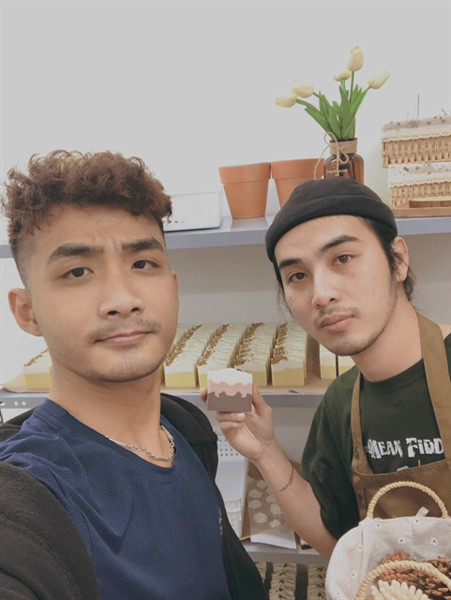Thirty-year-old Ha Anh Tuan felt trapped in his career after a business failure, but finally discovered a new creative direction: making artistic soap.
Tuan said that working for eight years in manufacturing, cosmetics and fashion left him feeling anxious, with the COVID pandemic adding to his unease.
"With limited financial resources, every plan failed consistently, and I ended up eating just one bowl of instant noodles each day, and lost more than 10 kilograms," he said.
"The burden of sustaining me also fell on my loved ones. Slowly but surely, I was more and more strain on myself until I couldn't function at all, suffering from chronic sleeplessness, poor problem-solving skills, a lack of memory, and acute sensitivity to new information. Even going outside and listening to the sound of a vehicle starting up gave me the creeps."
After five months of therapy, Tuan opted to return to his hometown, and his health progressively improved.
He realised he had squandered too much time, so he and his younger brother started spending time analysing their relative strengths and setting new goals.

"Artisan soaps have huge potential in the market right now. Artistic soaps are big business in places like South Korea, China and Japan, yet there are hardly any factories producing them in Vietnam," he said.
"So we both decided to study and learn from specialists, and eventually our first batches of handcrafted soap were made."
'Take on challenges without fear'
While there are many ideas and experiences from the beauty industry, Tuan and his brother had to start from zero, slowly acquiring information, sources of ingredients, calculating formula, and learning the making method.
He admitted that producing soap was not difficult, but making handcrafted soap for commerce had many challenges.
"We had to throw out many different batches of handmade soap, and there were times when we didn't know where it went wrong, especially as climate factors are among the causes that easily affect the process of soap making," Tuan said.

He also had trouble with the choice of ingredients, aromas, colours, and specialised equipment.
Tuan said that he and his brother spend a lot of time and money finding reliable suppliers, since the Vietnamese market lacked a dedicated facility for craft soap.
He said that all the soap ingredients are now imported, and all natural ingredients, including olive oil, jojoba, sacha inchi, sweet almond, and colours, are FDA-approved.

When asked about his creative inspirations, Tuan said that artisan soaps are decorated with numerous layers of colours, carefully calculated to every detail, with small representations of natural settings, landscapes, and iconic paintings and movies.
"The technique to create beauty soap is similar to decorating a cake," he said.
"But, it is much more difficult since it is the nature of soap to harden, so there is not too much time to change the decorative design."
After a time spent on branding, Tuan has finally developed a product that carries his own trademark. Along with three other people, he produces between 6,000-8,000 bars of soap every month, bringing in revenue of more than VND100 million (US$4,200).
Tuan hopes to have a bigger workshop so that others interested in 'soap art' may come to visit and learn.
He has also expressed the hope to motivate other young people who are going through difficult times by sharing the story of his startup.
"I wish that youngsters dare to be different, are willing to learn, and ready to change themselves for the better. They must take on challenges without fear. After adversity, they will suddenly discover how exceptional they are," he said.
Source: Vietnam News